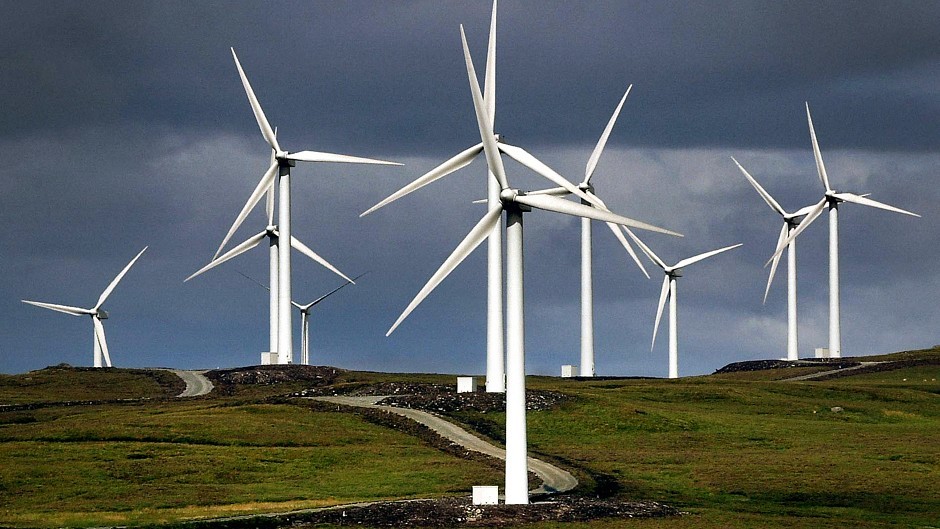The UK Government is to end new subsidies for onshore windfarms by closing the existing payments schemes a year early.
The decision was hailed by anti-turbine campaigners last night – but immediately put the Conservative administration at Westminster on a collision course with the SNP government in Edinburgh.
Critics of the move said Scotland would be hit harder than other parts of the UK and that carbon reduction targets would be missed.
But supporters hailed the news as a victory over an industry they accuse of blighting landscapes and rewarding producers of inadequate technology.
The UK Government’s move followed its general election pledge to cut public subsidies for onshore wind on the grounds that it is not a stable source of energy.
The deadline for entry on to the Renewables Obligations (RO) scheme has been brought forward to April 2016, although there will be a grace period for projects which already have planning consent, a grid connection agreement and land rights.
Energy and Climate Change Secretary Amber Rudd said onshore wind remained an important part of the UK’s energy mix and that there were enough subsidised projects in the pipeline to meet climate change targets.
Onshore wind received more than £800million in government subsidies last year, Ms Rudd said, adding that the time had come to end the dependence on hand-outs.
But the following the announcement, First Minister Nicola Sturgeon wrote to David Cameron urging him to reconsider the “perverse” decision, which she said had been made without Holyrood’s consent.
She said: “Onshore wind is the cheapest way of producing large-scale renewable electricity in the UK, a fact admitted by your own government’s secretary of state for energy in an interview today.
“Keith Anderson of Scottish Power estimates that bringing onshore wind to an end prematurely will cost consumers £2billion to £3billion as other more expensive generation will be required instead.
“It is perverse to scrap the most cost-effective route to our shared renewable ambitions and put consumers at risk of higher bills.”
Scottish Energy Minister Fergus Ewing said the “deeply regrettable” measure would have a “disproportionate impact on Scotland” as about 70% of onshore wind projects in the UK planning system were to be built north of the border, and he warned that the government’s actions could end up being the subject of a judicial review.
John Constable, director of Renewable Energy Foundation, a UK charity which has long been a critic of subsidies, said the decision should have been made years ago.
Jenifer Baxter, head of energy and environment at the Institution of Mechanical Engineers, describe onshore wind as an intermittent and expensive way to generate low carbon energy which needed to be phased out.
Beauly-based anti-windfarm campaigner Lyndsey Ward said: “Westminster has done something the SNP government has never done – offering protection and hope for those fighting the ruthless multinational wind developers who have targeted communities again and again.
“Fergus Ewing has only been heard speaking out for the wind industry and parroting their propaganda, and has never sought to protect adversely affected communities.
Highland Council leader Margaret Davidson, of Loch Ness ward, where there have been many major windfarm applications, warned: “I suspect what this will mean is a surge in applications.
“There isn’t yet clarity about which proposed developments might be affected – whether they already have to be in the planning system – so there is a lot still to know.
“But, speaking from the point of view of many people in the communities I represent, they are extremely worried about the cumulative impact of the number of windfarms, especially around Loch Ness.
“I think this could well turn out to be good news. But there is still a lot to understand before we can say that definitively.”

